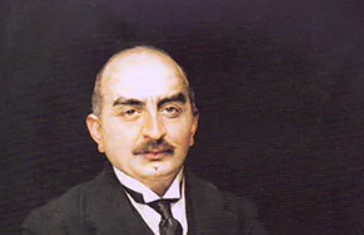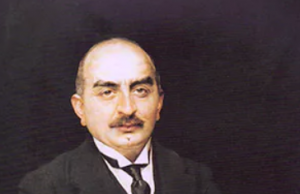
Mr Five per cent tycoon

“Mr Five Per Cent” the godfather of Iraq’s oil industry, Calouste Gulbenkian’s art of negotiation with minutiae of complex legal agreements, and haggling until the breaking point of an opponent’s patience was reached, is in line with his motto “ Check, check, Check”. When he died in 1955, aged 86, he was the world’s richest man £19.4billion, a backroom fixer, an intermediary between the worlds of business, diplomacy and high finance, his life has been surprisingly neglected. The forgotten tycoon’s monument was his business and the stupendous art collection which are now at the foundation that bears his name in Lisbon.
Despite owning several large homes and an extensive estate in Normandy, he lived mostly in hotels, including the Ritz in Paris, where he dined alone, shunned the society of his family, which he kept on a tight financial leash.
Born in 1869, to a wealthy Armenian merchant dynasty in Istanbul, Gulbenkian grew up in a community that was itself a state within a state. Armenian suffered civic disabilities under the Ottoman Sultan’s regime. However, the wealthy sought foreign nationality so they could benefit from the legal “capitulations” that protected the citizens of western powers from Turkey’s courts and taxes.
Educated in London, Gulbenkian hailed from a textile business towards the novel possibilities of the oil trade.
He became the fixer for Henri Deterding, The Dutch dynamo who created Royal Dutch Shell from a patchwork of concessions round the world. Gulbenkian sweet-talked prospectors into accepting Shell’s fat management fees and catastrophic freight charges financing the concessions with astute share sales and keeping a tidy sum for himself.
His break came as a self-styled honest broker securing a grant on concession in the decaying Ottoman Empire ( the future Iraq Petroleum Company) and peddling it to European powers hunting for a stake in the pre-war scramble for hydrocarbon reserves. He allied with the Germans ( the Deutsche Bank Chief Arthur Gwinner and play them off against the British if he could his 5 per cent.
A letter from Sultan’s grand vizier confirming the grant was issued on June 28, 1914, the very day Gavrilo Princip fatefully gunned down Archduke Franz Ferdinand in Sarajevo. The resulting conflict brought freewheeling pre-war world to convulsive halt and reminded the strategic importance of hydrocarbons.
Gulbenkian was arrested briefly during the war when a sharp-eyed passport official noted he remained on the diplomatic lists of the Ottoman Empire, at the time an enemy, while also serving the French.
When the Soviets expropriated the Russian oil industry after the revolution, much of it in the hands of Deterding, he stepped forward offering to create a non-aligned oil major beyond the reach of the western powers.
Between 1928 and 1930 he bought a series of masterpieces including Houdon’s life-size marble figure of Diana and Rembrant’s “Pallas Athene”.
During the second world war, he stayed safely put in Vichy until 1942, earning him the designation of enemy alien by the British authorities and the forfeiture of his assets.
Mr Five Per Cent: The Many Lives of Calouste Gulbenkian, the World’s Richest Man by Jonathan Conlin Profile £25, 416 page.
